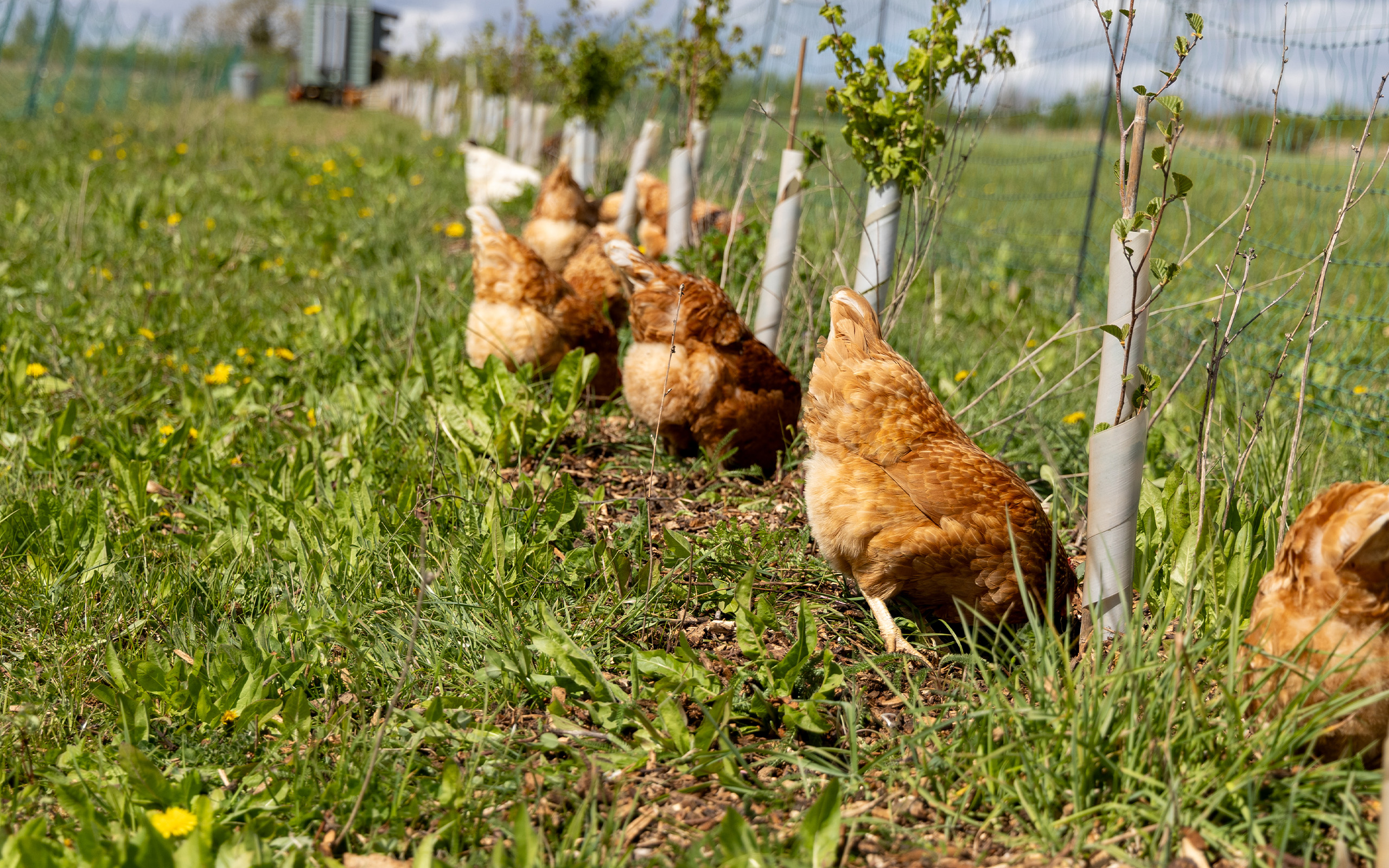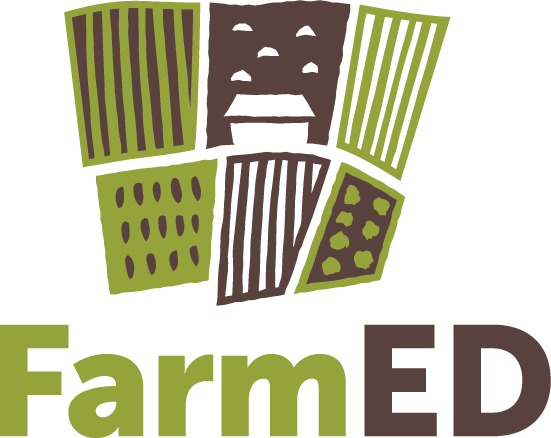Discover more about our newest arrivals on the farm... thirty free range chickens!
Sep 15, 2025

Not only can visitors to the FarmED Cafe enjoy real farm-to-fork veg and heritage grains, but now there are farm fresh eggs on the menu too, courtesy of the thirty hens which are also used to graze the agroforestry strips on the farm.
The hens are all rescue animals, coming to us last November, aged eighteen months old, instead of being culled.
They are housed in a bespoke eggmobile which our agricultural worker, Henry, adapted from a single horse box and this is moved up and down the agroforestry strips, between the crops in our eight year rotation, allowing the hens to graze around the trees. The hens are particularly useful for keeping the chicory, from our soil improving herbal leys, under control. It grows very fast and can quickly dominate the young trees, which are mostly deciduous, native hedgerow trees. The hens also effectively weed in between the trees, a job that previously had to be done by hand.

The eggmobile is moved to the top of the hill using the truck and then is literally just pulled down a trailer’s length (three or four metres) by hand each day. The chickens are fenced in with netting, with an electric fence around the outside to protect them from fox attack.
‘It’s a method that’s been developed by Joel Salatin and Richard Perkins,’ says Matt Elliott, our Agricultural Lead and a chicken farmer with 120 hens at his own farm near Northleach. ‘The principle of regularly moving the chickens onto cleaner ground has been practiced on farms for years. If you see chickens that are grazed on the same spot outside, you’ll quickly see bare earth, with nothing left. This way they get lots of fresh plants to eat. It’s a simple system but it works really well. The hens do a good job, scratching and pooing. Their poo is also fertiliser of course so it will be interesting to see if there are particularly fertile strips of soil between the trees in a year or so.’
As well as pecking their way up and down the agroforestry strips, the chickens are also given the cleanings after harvest, plus a milled mixture of peas, beans, oats, wheat and barley grown by Sam and Helen Wade.
‘It’s soya free feed that Helen and Sam grow themselves to feed to their pigs,’ explains Matt. ‘The protein content is about 16% which is what chickens need, and the mix uses potato protein rather than soya. I've been feeding it to my chickens at home and they've done very well on it. So we introduced that here at FarmED as well.’
Eggs are collected every morning, when the eggmobile is also cleaned out and feed and water topped up. There’s also a second collection later in the day to ensure that the eggs are clean.

The thirty hens are producing an average of twenty eggs a day. ‘That’s essentially about a 66% lay rate which is good, for older hens.’
The eggs all go directly into the kitchen to be used in recipes. They are poached, fried or scrambled and added to frittatas for breakfast and if there are enough left, there’s an option to add a boiled egg to salads at lunchtime.
The FarmED Cafe is open from 9am-4pm, Monday-Friday. Breakfast is served 9am to 11am and lunch is between midday and 2pm.
Recent news items




